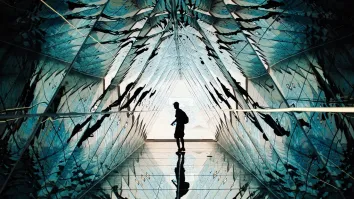Why Hong Kong needs a corporate wellness paradigm shift now
By Lawrence ChiaBy mid-June of 2021, more than 2.4 billion COVID-19 vaccine doses had been administered to populations in 180 countries, according to data collected by Bloomberg. While that may be encouraging news on its face, a return to ‘business as usual’ remains a distant and uncertain prospect; though COVID transmission rates are down in some countries, they have skyrocketed in others, causing yet more rounds of lockdowns and bringing economic activity to a virtual halt.
Just as nobody knew how far and deep the pandemic’s impact would be on business, nobody today can predict when its effects will cease to be felt. Or even if they ever will. ‘Business as usual’, when it returns, may be strikingly different from the pre-pandemic norm. Is there any way to prepare for the unforeseeable?
Of course, no business can prepare for every eventuality. But we can equip ourselves with an all-purpose basis for continuing business and minimising losses in crisis. To take my own company as an example, Pico was inevitably hit hard by the pandemic, as a large proportion of our business is in activating brand experiences through live events and exhibitions. When the MICE (meetings, incentives, conferences and exhibitions) sector itself ran into a headwind, we needed to move quickly to devise a response – but with deliberation.
For our staff around the world, we devised standard procedures for protecting their health and enabling them to continue work at overseas project sites or while self-isolating at home. For our business, we redoubled our efforts in the one area of our existing service offerings that looked promising amid pandemic conditions: virtual events. By moving marketing and brand-building events such as product launches, exhibitions and trade shows online, we would be supporting our clients’ business continuity as well as our own.
This proved an astute move: as more and more in-person events were cancelled or indefinitely postponed, demand began to build for safe-but-effective online equivalents. To name just a few, in the last few months we’ve seen virtual editions of CENTRESTAGE, the Brand New Virtual Hong Kong International Fur & Fashion Fair, and Cloud Expo Asia. Even the Hong Kong Tourism Board got into the act with Hong Kong WinterFest’s award-winning virtual tour of ‘Christmas Town’. All these demonstrated how far technologies and techniques have gone towards making online events as immersive and memorable as the ‘real’ thing.
The experience we gained from our own crisis response was valuable in other ways too: in Hong Kong, we continue to advise event organisers and venue operators on safe management practices for events. In Malaysia, we were part of a task force preparing the way for a rejuvenation of Penang’s business events industry.
Our CSR activities were refocused onto pandemic control, but not curtailed; after all, if such activities are deemed important in normal times, surely they are even more vital when communities are experiencing an actual crisis. Meanwhile, our professional expertise in designing, constructing and installing exhibition booths, and fully-functioning temporary facilities was redirected to designing and providing COVID-19 patient care, testing or vaccination facilities in places such as Hong Kong, Malaysia, Myanmar and Singapore.
Many enterprises have been able to emerge from the depths of the pandemic intact, capable of responding to whatever the post-pandemic market demands. And indeed, even now, the picture of just what those demands will be remains hazy. The pandemic, as crises sometimes do, has acted as an accelerant on trends that were already under way: certainly, it has shifted consumers even more radically toward online shopping, home delivery and working from home. The ripple effects are being felt by virtually every business, and there’s no reason to expect them to reverse themselves in the post-COVID era.
For the MICE industry, that was recently underlined in a consumer survey by Gartner, which indicated that just 21% of respondents felt willing to engage in physical contact with others even after receiving vaccination. Perhaps the bounce back to purely in-person events will be more gradual than most predicted. To reflect this sentiment – particularly in regions subject to strict quarantine or preventive measures – it may be wise to assume upcoming shows and events will be virtual, while being prepared to transform them into hybrids with in-person elements should the situation permit.
For business in general, the bigger message is: while crises may or may not be foreseeable, their full effects are not. You only know them when you are already in their midst. Prepare to be prepared.









![Cross Domain [Manu + SBR + ABF + ABR + FMCG + HBR + ]](https://cmg-qa.s3.ap-southeast-1.amazonaws.com/s3fs-public/styles/exclusive_featured_article/public/2025-01/earth-3537401_1920_4.jpg.webp?itok=WaRpTJwE)









 Advertise
Advertise


